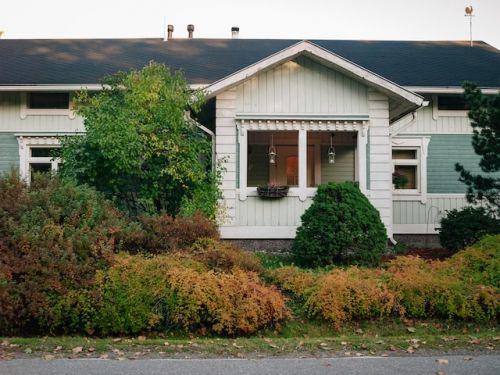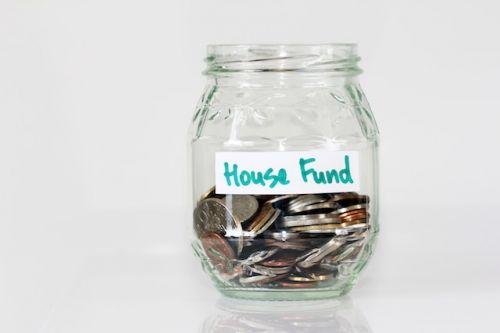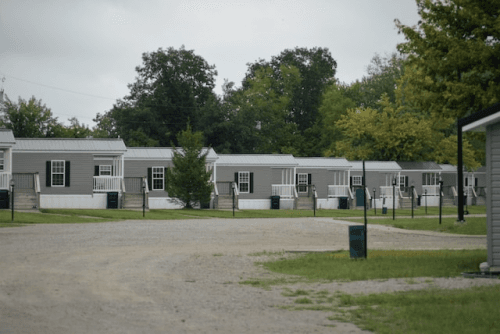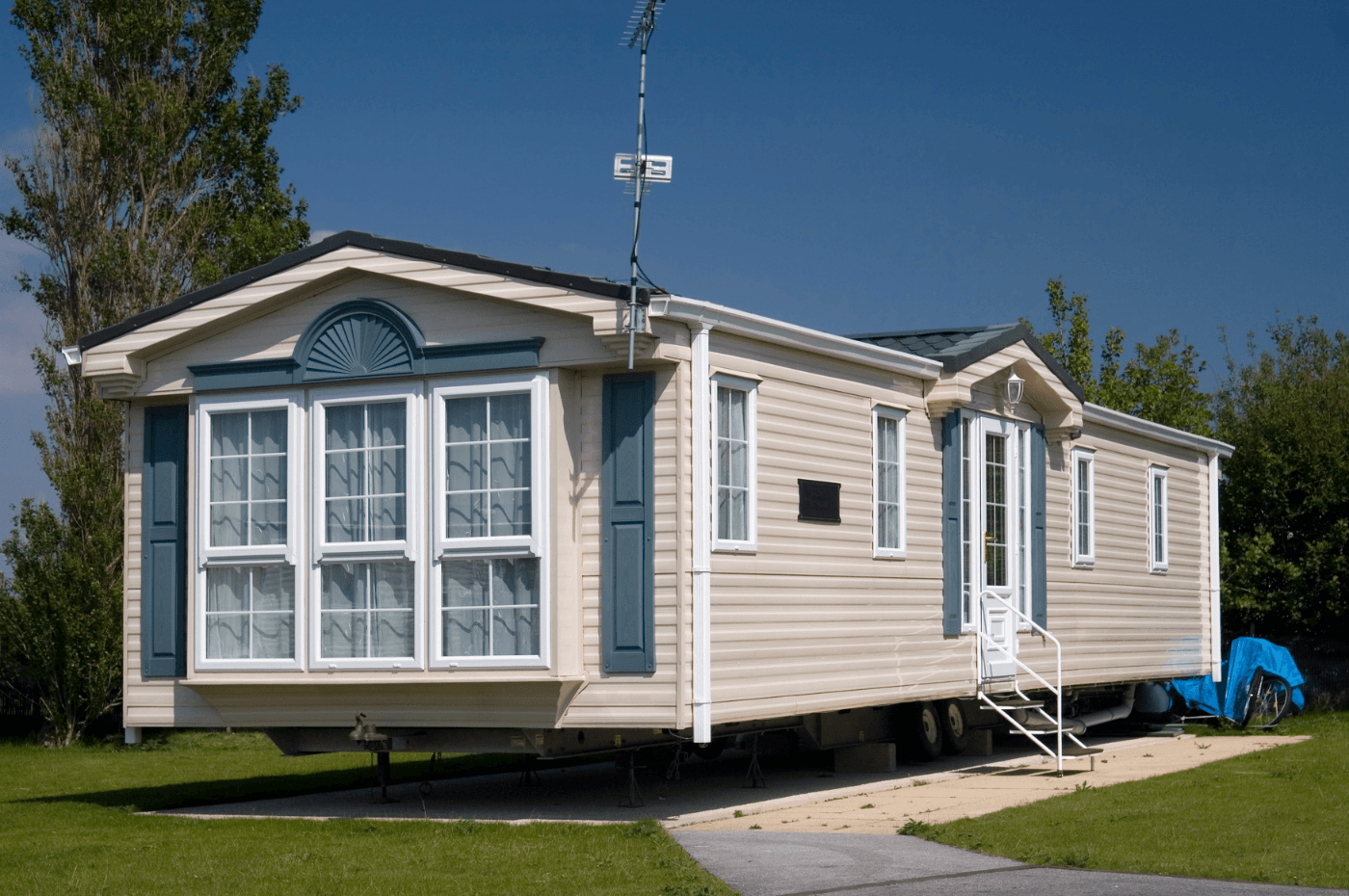With skyrocketing rent prices and a sharp increase in property values, more and more households, especially younger generations, are turning to alternative housing options. Among them, mobile homes are experiencing renewed interest. For many, they represent an accessible gateway to homeownership in an increasingly challenging real estate market.
As with any real estate investment, buying a mobile home requires careful consideration. It’s essential to fully understand what this type of housing entails, whether in terms of costs, financing, long-term value, or the type of land it’s installed on.
This article offers a comprehensive overview of mobile homes to help you make an informed decision that aligns with your situation.
What is a mobile home?
A mobile home is a type of modular dwelling that is factory-built, then transported and installed on a plot of land selected by its owner. While it is typically intended to remain in place permanently, it retains its mobile nature, as it can be moved with the proper equipment.
Mobile homes are often configured as 4½ or 5½ units, laid out on a single level without a basement or additional floor. Their compact and functional design makes them a practical housing option for a variety of households.
That said, the reality of living in a mobile home can vary significantly depending on whether it’s installed on leased land or land that has been purchased. This distinction plays a key role in both costs and long-term stability.
Why buy a mobile home?
Buying a mobile home can be appealing for several practical reasons, but it also comes with notable limitations. Depending on whether the home is located on rented or owned land, the experience and the associated costs can differ substantially. Here is an overview of the main advantages and disadvantages to consider before making a decision.

What are the advantages?
-
Compact and functional layout: With a generally smaller surface area than a traditional house, both indoor and outdoor maintenance is simpler and quicker.
-
More peace and quiet than in an apartment: Living in a mobile home means you don’t share walls or ceilings with immediate neighbours, offering a quieter environment.
-
A sense of safety and community: In mobile home parks, the close-knit atmosphere and proximity of residents are often seen as reassuring, especially among older adults.
-
Often undervalued: Contrary to popular belief, many mobile homes are well maintained and renovated, providing comfort levels comparable to other types of housing.
What are the disadvantages to consider?
-
Financing limitations: Mortgage amortization for mobile homes is capped at 25 years, whereas first-time buyers of traditional homes may qualify for terms up to 30 years. This results in higher monthly payments.
-
Land ownership challenges: On rented land, tenants must pay monthly rent in addition to other fixed costs and risk eviction if the lease is terminated. Moving a mobile home is expensive, and finding a new location that complies with municipal regulations can be difficult.
-
Property value: Mobile homes on rented land rarely appreciate in value. Those on owned land offer more stability and a better resale potential, but come with a significantly higher purchase price.
What is the purchase price of a mobile home?
In 2025, the mobile home market reflects two very different realities depending on the type of land where the home is installed.
-
In residential parks where the land is leased, the median price is around $160,000, with most properties listed between $130,000 and $250,000.
-
A mobile home located on owned land now sells for much more. Prices typically range between $300,000 and $320,000 for both the land and the home, amounts that are increasingly comparable to those of a small single-family house.

Land rental and related fees
For mobile homes located on leased land, a monthly rental fee must be factored in. In 2025, this amount typically remains under $300, but it can vary depending on the location and the services offered in the residential park.
In addition to rent, buyers should also anticipate the usual costs associated with any real estate transaction, such as the welcome tax, property and school taxes, and notary fees to finalize the purchase.
Price: how much does a new prefabricated mobile home cost?
In 2025, the price of a new mobile home in Quebec generally ranges between $100,000 and $200,000, depending on the model, surface area, and selected features. Basic models start at around $160,000, while larger or better-equipped versions can reach up to $200,000.
This price does not include installation costs, which may involve transportation, foundation work, utility hookups, and municipal permits. Depending on the project, these additional expenses can amount to several thousand dollars. It is therefore essential to include them in the overall budget when assessing the true cost of purchasing a new mobile home.
Do mobile homes increase in value?
As with any property, resale value is a key consideration when buying a mobile home. However, the answer largely depends on demand and on the type of land where the home is located.
In general, mobile homes situated on leased land tend to appreciate very little over time, as the lack of land ownership limits their potential for increased value. In contrast, mobile homes on owned land benefit from greater long-term stability and are more likely to follow local real estate market trends.
It is also worth noting that in recent years, rising prices in the traditional housing market and growing interest in alternative living options have helped push up the value of mobile homes.
Leased or private land: how to finance a mobile home
Financing a mobile home remains more restrictive than financing a traditional house, as not all financial institutions accept this type of file. The options also vary depending on whether the home is installed on leased or owned land.
Today, several major institutions such as Desjardins, RBC, and National Bank offer mortgage solutions for mobile homes. Since October 2024, National Bank even provides financing for homes on leased land, as long as the residential park is recognized and the lease is valid. In some cases, a chattel mortgage is combined with a traditional mortgage to protect the lender.
When eligibility conditions are not met, for example, if the home is too old or if the leased land is not accepted by the bank, the purchase may sometimes be financed through a personal loan or chattel loan, which is more similar to car financing than to a conventional mortgage. These alternatives usually come with higher interest rates.

Where can a mobile home be installed in Quebec?
A mobile home cannot be built just anywhere. It must be installed in a zone where municipal regulations allow it, such as a residential mobile home park or, more rarely, certain campgrounds. These opportunities remain limited and vary from one municipality to another.
Which cities allow mobile home parks?
In Quebec, several private companies own mobile home parks and offer rental lots in various cities, including:
- Bromont
- Granby
- Saint-Basile-le-Grand
- Morin-Heights
- Rimouski
- Saint-Colomban
- Saint-Paul-d’Abbotsford
- Saint-Sauveur
- Sorel
- And many more
How do you move a mobile home?
Moving a mobile home is a complex operation that requires the help of building transport specialists. The structure must be properly prepared, disconnected from all utilities, and loaded onto a specialized trailer. Municipal and road permits must also be obtained, and the new site must comply with local zoning regulations. This process involves significant costs and must be carefully planned.
Are mobile homes a modern answer to the housing crisis?
In light of rising property prices, some see mobile homes as a possible solution. In practice, however, their potential remains limited for now. The main reason lies in zoning laws and municipal constraints, which restrict the creation of new parks and the placement of mobile homes on private land.
Still, growing interest in this type of housing could eventually prompt some municipalities to revise their regulations to make installation easier. While mobile homes alone will not solve the housing crisis, they could become a valuable complementary option if the legal framework evolves.
Do you have a real estate project?
XpertSource.com can help you find a real estate expert. When you tell us about your project, we put you in touch with qualified resources for free. Simply fill out our form (it only takes a few minutes) and we will connect you with professionals.

